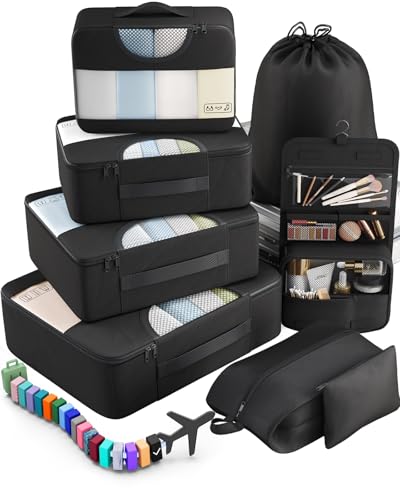In Liberia, they use Type A and B power plugs and outlets. The voltage is 120V, and the frequency is 60Hz.
Good news! You won’t need a travel adapter in Liberia. Their plugs and outlets are the same as our standard Type A and B back in the States.
Quick Overview of the Plugs in Liberia:
- Plug type in Liberia: A and B
- Standard voltage: 120V
- Frequency: 60Hz
- Need a travel adapter? No, you don’t need a travel adapter
- Need a voltage converter? No, a converter isn’t needed
Our information is based on official power regulations from each destination, international IEC standards, and input from travelers who’ve experienced it firsthand.
Visiting Liberia as part of a regional trip? Many travelers also head to Côte d’Ivoire, Guinea, or Sierra Leone. Make sure your plugs will work across borders.
Top Travel Essentials to Pack
It’s often the little things that make travel smoother. These essentials are easy to pack—and even easier to appreciate once you’re abroad.
Digital Luggage Scale
Packing Cubes
Power Bank
Power Outlets in Liberia
In Liberia, they use Type A and B power plugs and outlets.
Type A

Type A outlets have two flat prongs and no grounding pin.
Type B

Type B outlets have two flat prongs and a grounding pin. Type A plugs will also fit.
Do You Need a Voltage Converter?
A voltage converter is only necessary if your device’s voltage differs from the country you’re traveling to. In Liberia, the voltage matches the U.S., so you won’t need one.
Always check the power specifications on your device before heading overseas. If it lists “100-240V, 50/60 Hz”, your device is safe to use internationally without needing a voltage converter. This applies to most phones, laptops, tablets, and personal care devices.

Which Travel Devices May Need a Converter?
If you’d rather be safe than shocked—literally—trust this best-reviewed converter to keep everything from hair dryers to laptops running smoothly in 180-plus destinations.
Device Need Converter? Notes Phone ❌ No Most modern phone chargers are dual voltage (100–240V) Laptop ❌ No Check the power brick label for 100–240V Hairdryer ❌ No (usually) High wattage; many models are not dual voltage Electric toothbrush ❌ No Most models are 110V only Camera / DSLR ❌ No (usually) Most chargers are dual voltage Power bank ❌ No Charges via USB, adapter is enough Electric shaver / trimmer ❌ No Older or cheaper models may not support 230V Tablet / iPad ❌ No All models are dual voltage Portable fan ❌ No Many models are compatible with 110V Game console ⚠️ Check voltage Newer consoles like PS5 and Xbox are often dual voltage — check to be sure Bluetooth speaker ❌ No Charges via USB E-reader (Kindle, etc.) ❌ No USB charging only, no converter needed
More About Liberia
Liberia is unique—Africa’s oldest republic and never colonized. It was established in the early 1800s for freed African-American slaves and declared independence in 1847, so there’s a deep American connection in its roots.
The country stretches along the West African coast with about 350 miles of sandy beaches, mangrove islands, rolling hills, and tropical forests. It’s home to over 20 tribal groups, English is the official language, and tribal languages are common in rural areas.
Today, Liberia offers some real adventure—surfing unspoiled beaches, exploring rainforests and lagoons, and experiencing a culture defined by resilience and rich storytelling. It’s not polished, but it’s deeply real, and off-the-beaten-path travel never felt more genuine.
Top places to visit in Liberia: Monrovia and Robertsport.



